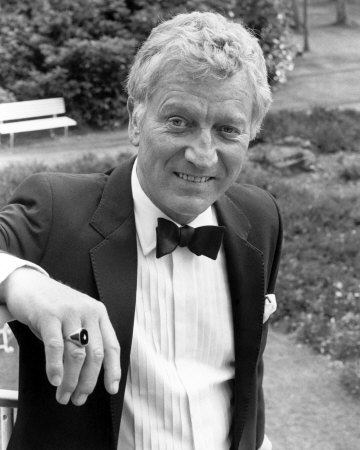Barry Foster (John Barry Foster)

Barry Foster was born John Barry Foster in Beeston, Nottinghamshire, the son of a toolsetter. His family moved to Hayes, Hillingdon (then in Middlesex) when he was a few months old. He attended Southall County Grammar School. After leaving school, Foster worked as a plastics organic chemist at the local EMI Central Research Laboratories, while unsuccessfully submitting ideas to advertising agencies. Foster trained as an actor for two years at the Central School of Speech and Drama in London, arriving there aged 20. It was here he became friends with an actor called David Baron, better known as playwright Harold Pinter. Foster would much later appear on stage in three of Pinter’s plays, The Basement and The Tea Party and A Slight Ache in 1987. Barry Foster’s professional stage debut came in 1952 as Lorenzo in The Merchant of Venice in County Cork. Then in 1955 he made his London stage debut as the Electrician in The Night of the Ball at the New Theatre (now the Noël Coward Theatre). His first film role was in the war film The Battle of the River Plate (1956). Over the next decade and a half, he performed in such films as Joseph Losey’s King and Country (1964), The Family Way (1966), Robbery (1967), Inspector Clouseau (1968), Battle of Britain (1969), and David Lean’s Ryan’s Daughter (1970). He had a regular role in the TV series The Troubleshooters (1965).
In 1972 Barry Foster played two roles, on opposite sides of the law. First was the cynical Dutch detective Van der Valk and second was serial killer Bob Rusk in Alfred Hitchcock’s Frenzy. The Van Der Valk role would resurface twice more in his career, in 1977 and once more in the early 1990s. Shortly after the third series in 1978, Foster took on the role of Sherlock Holmes in a series of radio appearances for the BBC. He recorded 13 episodes of the Holmes canon, with David Buck as Dr. Watson. He was also seen on BBC television in Fall of Eagles (1974) in the role of Kaiser Wilhelm II and as the condescending chief of British intelligence in the adaptation of the John le Carré novel Smiley’s People (1982), starring Alec Guinness. During this time he appeared in the films Sweeney! (1977), spun off from the TV series; The Wild Geese (1978), and Merchant Ivory’s Heat and Dust (1983) and Maurice (1987). From the 1990s onwards, Foster mainly performed on stage. He took on the role of Inspector Goole in J. B. Priestley’s An Inspector Calls in a production directed by Stephen Daldry. In 2000 he starred as Prospero in The Tempest at Stafford Castle directed by Julia Stafford Northcote. In 2001, he started performing Yasmina Reza’s ‘Art’ alongside Nigel Havers and Roger Lloyd-Pack. Once he left that, he returned in 2002, but on 11 February he died of a heart attack while being cared for at the Royal Surrey County Hospital in Guildford. His final film was Rancid Aluminium (2000).
Some obituaries (e.g. BBC Online) incorrectly stated his year of birth as 1931. The British Film Institute website provides definitive year of birth as 1927, based on a check of the birth and marriage certificates held at the Family Records Centre, London. He married Judith Shergold in 1955 in Birkenhead, and they had two daughters and a son. After Foster’s death, a trust was set up, the Barry Foster Memorial Appeal, to help disabled children become involved in the theatre.
Born
- August, 21, 1927
- United Kingdom
- Beeston, Nottinghamshire, England
Died
- February, 11, 2002
- United Kingdom
- Guildford, Surrey, England
Cause of Death
- heart attack
Other
- Cremated



